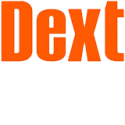Looking for your Refund - Here is a link to our refund tracker
Learn moreIncome tax in the age of inflation

It’s no secret that inflation has grown significantly over the last two years. From consumers’ pockets to small businesses, its impact has left very few unscathed.
The Inflation Reduction Act recently signed into law includes new and extended tax credits to incentivize businesses and individuals to boost renewable energy usage. Not only that, but due to the rise of inflation, the IRS has shifted income tax brackets, meaning individuals (and businesses) may see savings on federal income tax bills.
Let’s review the new tax changes for 2023 and how they—and inflation—could impact your personal and business taxes.
Inflation adjustments
Each year, the government adjusts many elements of its complex tax code to reflect inflation, and this includes standard deductions and tax brackets. This prevents inflation from causing your income to move into a higher bracket—known as bracket creep. But that’s not all. Keep reading to see what adjustments have been made due to inflation.
Tax brackets
The tax rates for 2023 aren’t changing, but the brackets have been adjusted by an increase of about 7% for each type of tax filer to account for inflation.
Standard deductions
For 2023, standard deductions have increased to $13,850 for those who file as single or married filing separately (up from $12,950), $27,700 for married filing jointly (up from $25,900), and $20,800 for head of household (up from $19,400). Taxpayers who are at least 65 years old or blind can claim an additional $1,500 ($1,850 if claiming single or head of household filing status).
Retirement accounts
Individuals can contribute an estimated $6,500 to an individual retirement account, up from $6,000. If you’re over 50, the catch-up contribution of $1,000 is allowed, but it isn’t adjusted for inflation.
Flexible health spending accounts
For the 2022 tax year, contributions to flexible health spending accounts increased to $2,850. For the 2023 tax year, contributions will increase to $3,050.
Health savings accounts
Contributions for health savings accounts increase to $3,850 for individuals (up from $3,650) and $7,750 (up from $7,300) for family coverage.
Earned income tax credit (EITC)
For qualifying taxpayers with three or more children, the EITC has increased from $6,935 to $7,430.
Tax-free public transit and parking costs
For commuters, benefits will rise to a maximum of $300 a month, up from $280.
Federal Insurance Contributions Act (FICA)
The maximum amount of earnings will increase to $160,200, up from $147,000, with both employers and employees contributing 6.2% of wages up to that salary threshold.
Healthcare provisions
The Inflation Reduction Act extends the Affordable Care Act premium subsidies (up to $800) through 2025 and expands program eligibility, which will help save money on healthcare costs for employees of small businesses or self-employed individuals.
Research and development (R&D)
The Inflation Reduction Act includes a significant increase in the amount of research and development (R&D) tax credits a small business can use against payroll taxes. Starting after December 31, 2022, the payroll tax credit increases from $250,000 to $500,000.
This change incentivizes eligible small businesses (i.e., a business with less than $5 million in gross receipts in the current tax year and a less than five-year history earning gross receipts) to claim the R&D tax credit, if they aren’t already doing so.
Renewable energy and electric vehicles
Clean energy incentives created in the Inflation Reduction Act can impact both individuals and small business owners in several ways.
Energy-efficient buildings
Building owners and lessees that bring commercial buildings up to a specific energy-efficient standard, including new construction or retrofitting older buildings, can qualify for a tax deduction of $5 per square foot.
Electric vehicles
New qualifying electric vehicles in service starting after December 31, 2022, through 2032, qualify for a $7,500 tax credit. A 30% federal tax credit (up to $1,000) extends to charging equipment for individual or residential use through 2032. The tax credit for qualifying commercial electric vehicles is up to $7,500 for those weighing less than 14,000 pounds and $40,000 for those weighing 14,000 pounds or more.
The cost of inflation is felt across the board, from consumers to businesses. With new legislation, deciphering changing tax codes can be overwhelming. Consult with your tax expert to make sure you’re taking advantage of any significant tax savings.
Back to issue









